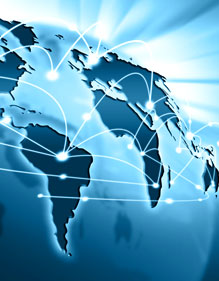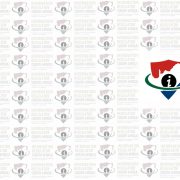|
Getting your Trinity Audio player ready...
|
 Freedom of the internet is an important part of any society that relies on digital platforms for the dissemination of valuable news and information, but when it is compromised this can easily infringe on basic human rights.
Freedom of the internet is an important part of any society that relies on digital platforms for the dissemination of valuable news and information, but when it is compromised this can easily infringe on basic human rights.
In South Africa, the Regulation of Interception of Communications and Provision of Communication-Related Information Act (more commonly known as Rica), is defined as regulating “… the interception of certain communications, the monitoring of certain signals and radio frequency spectrums and the provision of certain communication-related information; to regulate the making of applications for, and the issuing of, directions authorising the interception of communications and the provision of communication-related information under certain circumstances…”
Many players in the online media and open democracy fields, however, do not concur with what is often publicised by government as the intended use of Rica – that is, to protect personal information and regulate the use of such information. Instead, Rica is viewed cautiously as a tool that, at worst, monitors users of the internet in order to keep them within the boundaries of information sharing that are set by government and big business.
At a recent seminar discussing the freedom of the internet in South Africa, media expert and teacher Indra De Lanerolle chaired a panel that explored the topic of internet freedom as both an ideal in a worst case scenario, and a recognised basic human right in a best case scenario. Joining De Lanerolle were Anriette Esterhuysen from the Association for Progressive Communication; Phillip de Wet of the Mail & Guardian; and Media Monitoring Africa’s Wellington Radu. The seminar was hosted by the Freedom of Expression Institute, on whose board De Lanerolle sits.
The fight for freedom of expression in the media is one that has to bring in the element of access to basic information online for the user. “If you think about it, how many people in South Africa have access to the media in their own language?” asked De Lanerolle.
Esterhuysen argued that in the African context, the fight for internet freedom has not been as vigorous as that aimed at gaining cheaper, faster access. “Our emphasis is on getting the access, having fast enough and cheap enough and as a result we have a two-stage approach: we think that we will worry about freedom of expression and security and privacy once we’ve got the access.”
For De Wet, a cause for major concern is the invasion, to gain access to information, of systems used by media houses. “We still don’t know who is behind some of the major intrusions into journalism and NGOs most recently that have been engineered painstakingly.
“Often it is because these people are very good at covering their tracks. The point is that it is so easy and so cheap to have data intrusion, as opposed to more traditional forms of surveillance.”
Taking our confidentiality obligations seriously
What does this all mean for an organisation like Corruption Watch, which utilises the online space for various important functions in its operations?
Internet freedom, as much as its stability and security, is vital for Corruption Watch’s complaints system and reports-rich content.
There are over 8 000 complaints registered on Corruption Watch’s database, gathered from its inception in early 2012 to date. The confidentiality of complainants is ensured by the organisation through stringent measures which require regular maintenance and security checking. Other than its custom-built reports management system, the organisation also disseminates news and information through its website, several social media platforms and a mobile platform that will be added to its package soon.
To take the public engagement agenda further, Corruption Watch Connected, an online community engagement platform, provides the space and freedom for members to debate with each other on corruption-related issues. This community has grown since the launch of the platform in February, to 350 users who signed up to belong to a focused forum where intelligent, solutions-driven conversation can take place.
For a younger group that prefers approach of social media to engage on issues, Corruption Watch launched a MxIt app that now has 106 000 subscribers.
Although Corruption Watch has taken a variety of steps to improve its information security, the seminar highlighted the importance of ensuring that security measures are constantly reviewed and tested and that more sophisticated approaches are adopted in this regard.
At a recent Transparency International (TI) conference, Corruption Watch was able to discuss similar security issues with various other TI chapter representatives. This gathering revealed the need for organisations to engage with one another to ensure that best practices are adopted in relation to information security. New and innovative approaches to protecting information are being developed every day and it is essential that organisations share these approaches with one another.
Surveillance should be regulated
For Corruption Watch’s platforms to grow in reach and usefulness, members of the public who value their importance have to be enlightened on what is being watched by authorities and why. This is applicable to all online sources of information.
Media studies professor Jane Duncan argued in a recent article in the Mail & Guardian that because the surveillance of the internet is not regulated, it is not ideal. “One of Rica’s most serious weaknesses is that no one is ever informed that their communications have been intercepted, even after [an] investigation is complete – the authorities are given a power that is largely hidden from the public eye.
“Rica requires cellphone users to register their names and addresses when buying a SIM card. Many democracies don’t require their citizens to do so, because it is a de-facto violation of the right to privacy,” wrote Duncan.









